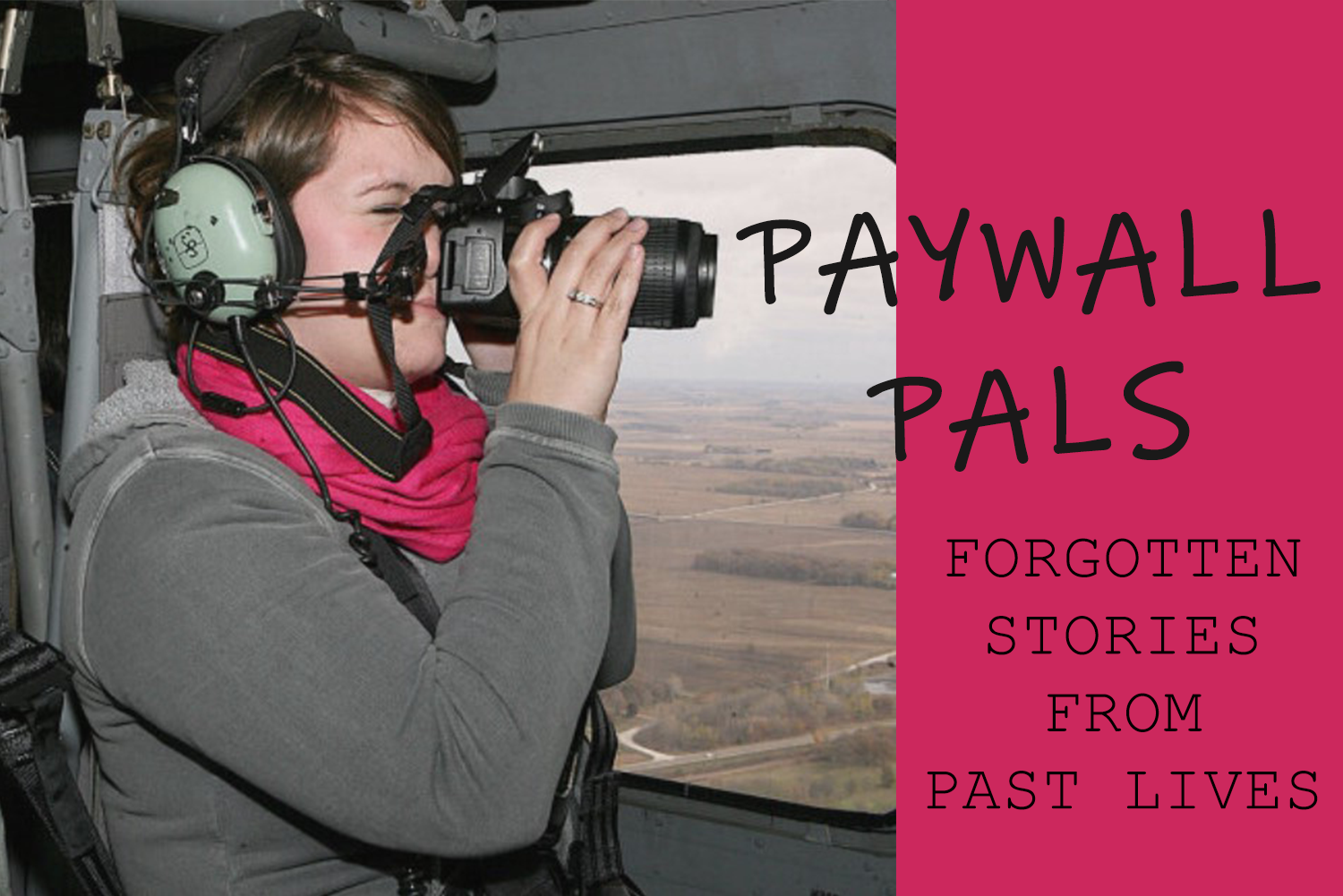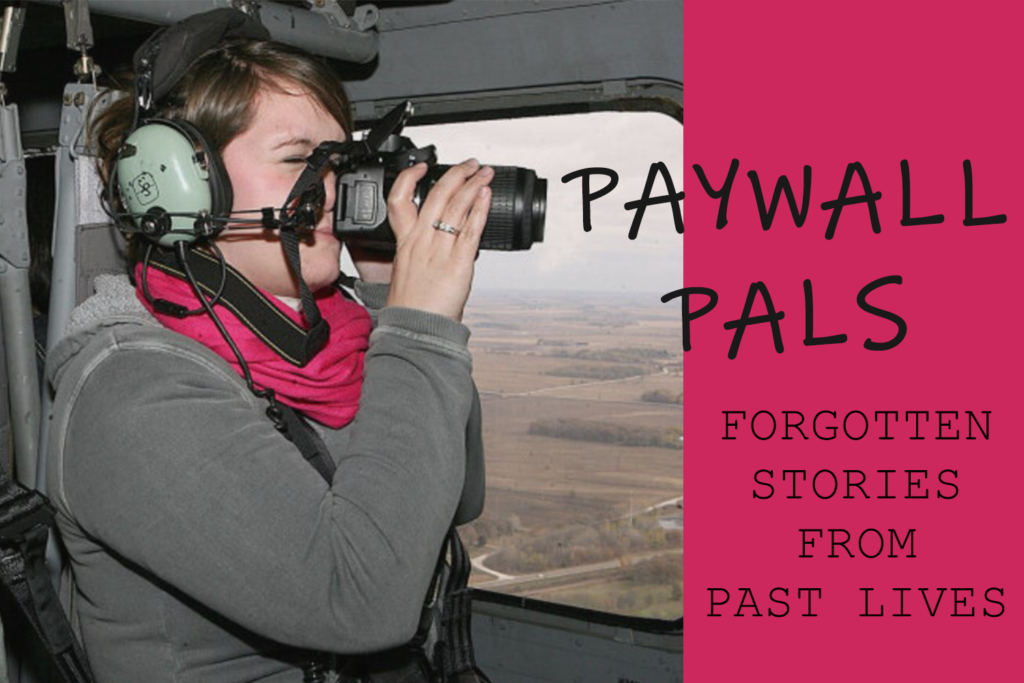
One of the Biggest Stories of My Career, 16 Years Later

Several of my major adult decisions have been motivated by coupons, including my choice of undergraduate institution. Many of my peers received the same terrific scholarship I did, but what we didn’t realize was it was the college’s going-out-of-business sale.
Halfway through my college career, the news broke that the institution was in serious financial trouble and another entity was buying my school. I’ll never forget the President struggling to describe the college’s financial position (debt which we now know totaled nearly $20 million), finally saying the decision became sell or close the doors of this place I called home. My ultra-small, religious, nonprofit college in rural Iowa was purchased by a for-profit, online university from Alabama in 2009.
As a journalism major and the editor of the college newspaper, I envisioned being able to practice my skills with a story that was truly meaningful and newsworthy far beyond my campus. But I definitely learned other, harder, lessons about working in journalism.
Astonishingly, the biggest barriers to telling this story became my own professors. The people teaching me about the industry blocked my ability to tell this story to the student body. I never asked any follow-up questions from my professors. As an adult who has dabbled in professional PR, I assume their decisions were motivated by a need to hold on to their futures, instead of thinking about helping me develop mine.
This was also the first time I ever heard the phrases “due diligence” and “brand management.”
In the end, this censorship was valuable as it exposed me to real barriers that are alive in well in the workplace and in life, to be confronted only by personal conviction and an unconquerable soul. The story that follows is what was finally approved, after rounds and rounds of edits and sanitization. My alma mater also recently announced they bought back the school, now owned by the Waldorf Lutheran College Foundation. This article originally appeared in The Lobbyist student newspaper on March 29, 2009 and also appears here.
“Collaborative relationship” breeds optimism, apprehension
Waldorf has agreed to a non-binding letter of intent with Alabama’s Columbia Southern University (CSU), a significant change that has sparked both confidence and concern.
“We have a letter of intent from CSU,” said Joy Newcom, public relations professor and director of brand management. The two entities are moving forward with plans to reach a definitive agreement and are working with several involved third parties.
CSU and Waldorf are working diligently on submitting a plan and agreements to the Higher Learning Commission of the North Central Association of Colleges and Schools by April 1, 2009 for approval.
According to Jessica Brown, CSU’s marketing director, a letter of intent means that “both parties are doing their due diligence to try to determine if a definitive agreement can be reached.”
Students have mixed feelings about the potential changes to campus.
“It’s better than doing nothing. We’re in a little bit of trouble, like the rest of America. It’s better than standing still and letting it go to waste,” said Brandon Porter, a sophomore Business and Psychology major.
“I read that the online school that is buying us out is a for-profit school,” said Kasey Krekling, sophomore Elementary Education major and baseball player. “I am wondering how the sports programs will be affected, especially since I know these programs need a lot of money to run.”
Krekling also wonders how tuition will be impacted. “I am hoping that since the debt will be taken away that the tuition does not continue to go up yearly.”
Brown responded to Krekling, saying that CSU is “trying to do everything (the institution) can to make sure current academic programs continue,” as well as providing adequate financial resources.
Student Senate hosted a table in the Atrium on Fri., Feb. 20 to address student questions. Student Body President Eric Villhauer answered questions at the table.
Students asked questions regarding everything from if the college was closing to the fate of the ELCA affiliation of Waldorf.
“There are a lot of rumors. We are trying to stop them and get the facts out,” said Villhauer.
“We’ve always had financial happenings. It’s our tradition to survive them,” he said. “Through these times of uncertainty we will be moving forward with cautious hopefulness and optimism.”
The feeling of optimism for the future of Waldorf and increased opportunity with the consulting relationship is consistent throughout the administration.
“Parts of our identity may change but the core of what we do I don’t see changing, except getting better,” said Dean of Students Jason Ramaker. “I don’t see the quality of the institution being sacrificed at all. It’s adding to the opportunity of learning and online learning is a part of the future.”
Part of modern online learning are hybrid programs, which Brown describes as combining classroom and online learning for a particular major. Students would still have traditional classroom opportunities as well as residential options, however. Waldorf and CSU are still working together to develop this new opportunity.
Both Ramaker and President Richard Hanson commented on the maintenance of accreditation and high quality faculty.
“I don’t think (the students) are going to notice any difference,” said Hanson. “The professors and classes will be here. I don’t know what else you could want.”
Brown agreed with Hanson, saying students should “see relatively few changes.”
According to Newcom, CSU responded positively to what Waldorf has to offer. In preliminary discussions, CSU has expressed their desire to keep Waldorf a residential campus, as well as to preserve “the identity of Waldorf”, which includes the way classes are taught and the personal attention to students, she said.
“Waldorf College provides a supportive and caring educational environment designed to help students reach their full potential,” said CSU President Robert G. Mayes. “We are interested in helping Waldorf continue to provide quality educational programs for decades to come.”
Administrative officials are sympathetic to student concerns, but urge students to trust the decisions being made.
“Hang in there. Be patient,” said Ramaker. “It’s fair to admit we’re all a little nervous, but I think it’s an exciting opportunity.”
President Hanson agrees. “We’re in the business of keeping the light on. I don’t think there’s anything to fear more today than yesterday,” he said.

Leave a Reply